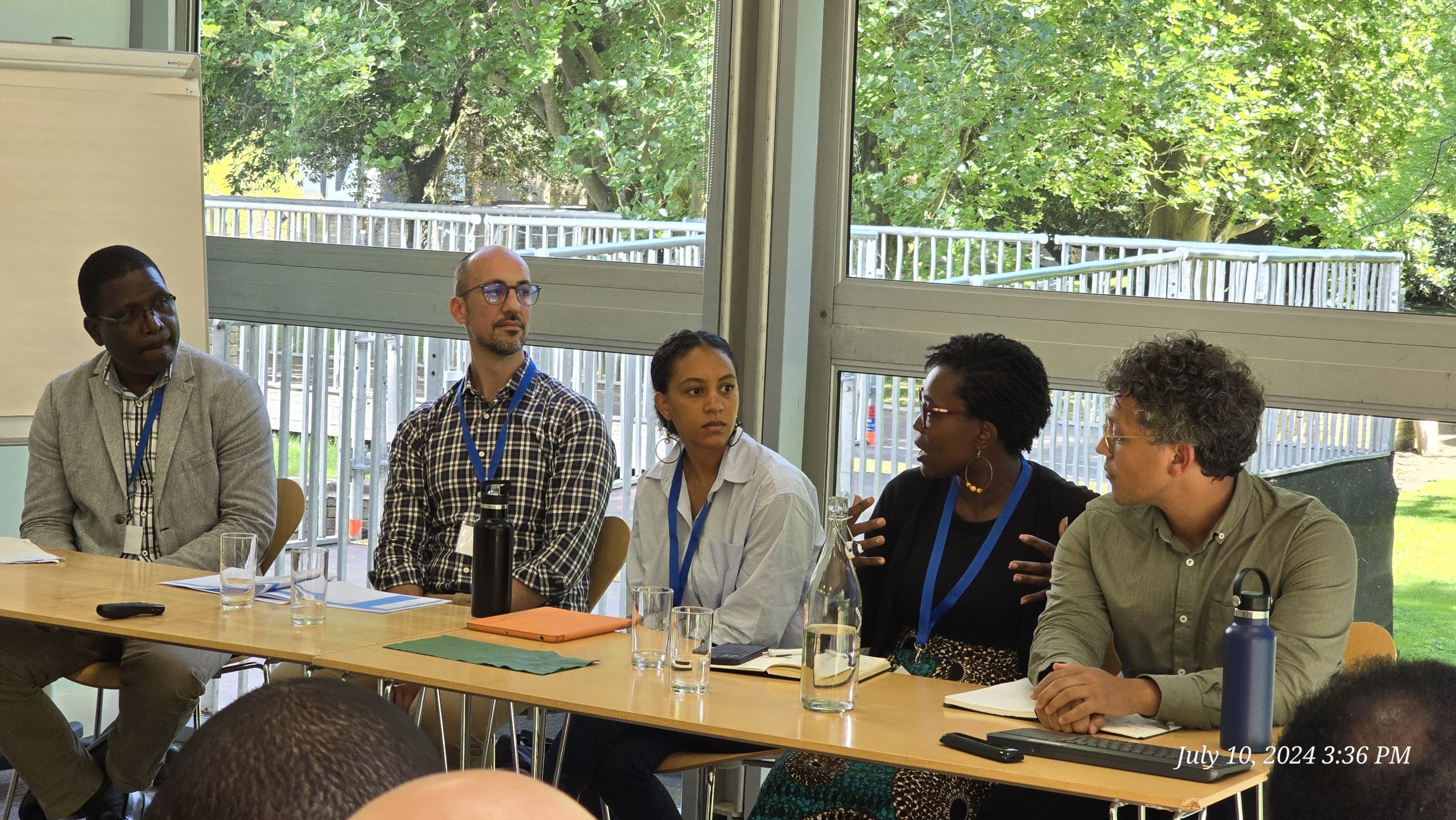The “light” emerging from a “lightning session” at the 2024 Oxford Global Health and Bioethics International Conference
By Davide Bilardi and Nadia Tagoe
The 2024 Oxford Global Health and Bioethics International Conference organisers dedicated a “lightning session” on ‘Towards a more Equitable Global Health’. Presenting at this session gave us a chance to reflect on some of our work linked to decolonisation and global health research. Some light indeed emerged for us from the conversation triggered by the series of five-minute presentations on the need for increased equity in designing, practising and evaluating global health initiatives.
Our contribution to the discussion was offering insights into persisting coloniality ingrained in the philosophy, processes and evaluation of research capacity strengthening in global health, and a reflection on the deeply inequitable structures and processes in the health research ecosystem. We also shared a potential framework for decolonial action towards change.
One thought-provoking question from the audience was whether there was a risk that serious reflection on the researchers’ position to address coloniality in global health would be reduced to a “reflexivity statement” accompanying journal articles and whether this could become a way to legitimise the persistence of power imbalances. Is it good enough to explicitly declare an awareness of the power dynamics related to our personal and extended history? Does this declaration contribute in any way to addressing inequities? Or are these statements another way for those with power to keep acting as leading forces in spaces where they should leave others to lead?

These questions prompted a deeper sharing of perspectives which contributed to our collective learning.
For example, there is a risk that reflexivity actions and statements are abused by those in power to “wash” the guilt for the history that they inherit by simply stating it. Reflexivity should be an entry point for a deep internal process meant to increase one’s consciousness of personal biases and assumptions and how these are shaped by history and experience.
Reflecting on personal positionality is an exercise every party involved in the decolonisation debate should undergo, irrespective of one’s perceived identity. Unconscious biases and unacknowledged power imbalances exist at multiple levels and among both those who have historically been colonised and those who did not suffer – individually and as a collective memory of their people – the dramatic impact of colonisation.
Unpacking these dynamics will require deeper reflection on self, influences, and if and how to act in different global health research activities, including knowledge production processes, knowledge dissemination, making funding decisions and training.
Decolonisation should be less about dominant actors including others in space and more about an equitable movement towards embracing a plurality of perspectives, where some are de-silenced, and others learn to be quieter. The key consideration is the ability to balance taking responsibility and getting engaged with standing back and handing over to and working with others.
Given that there is so much to undo and rethink – which can be overwhelming – the audience were keen to learn about immediate actions that would contribute to change.
We believe that decolonisation requires multi-level and multi-pronged action, whether at the global or local community level, targeted at various domains of the health research ecosystem, involving incremental or radical change.
Whatever “side” of the historical spectrum of colonialism we are rooted in, reflecting on our position within the current debate on decolonisation, increasing our awareness of the manifestations of colonial legacies, and challenging our assumptions will enable collective and effective actions towards a more inclusive global health research space.

